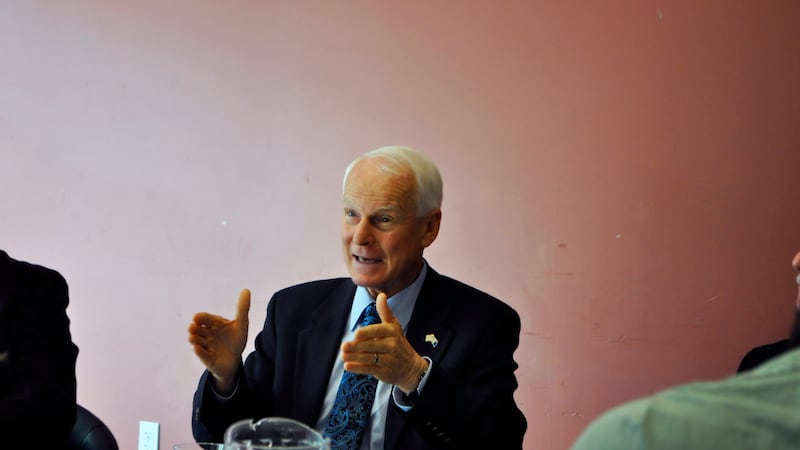As the White House continues to pursue President Donald Trump's false and bizarre claim of widespread voter fraud by undocumented immigrants, a presidential commission yesterday asked all 50 states to hand over their full voting-roll data to the feds.
At least 22 states have already rejected the Election Integrity Commission's request. But Oregon hasn't.
Oregon Secretary of State Dennis Richardson has been notably silent since the commission's Thursday request. That's odd—because many Republican secretary of states have mocked the idea of turning over their voter data, and Richardson himself has already told Trump no voter fraud occurred in Oregon.
Richardson's office hasn't made any announcement. It also hasn't returned phone calls and emails from WW.
Update: Richardson tells Trump no.
This afternoon, U.S. Sen. Ron Wyden called Richardson out on Twitter.
"Richardson should follow the lead of other SOSs & not send Oregonians' voter data to Kobach's commission," Wyden wrote. He called the request a "direct threat to Oregonians' security, privacy & right to vote." He also called it a tool of voter suppression.
That's hardly a boutique opinion. Multiple experts have described the commission as a serious threat to voting rights.
The request called for states to provide all publicly available voter data, which may include full names of registered voters, dates of birth, party registration, last four digits of Social Security numbers and voting history.
Much of this information is already public, regularly handed out by the state, and easily obtained (for a $500 fee). Those flyers you get in your mailbox every election cycle? They arrive because campaigns buy the list of voting rolls, which includes your party affiliation and voting history (when you voted, not who you voted for).
But it appears that some of the information Trump's commission wants is more detailed than the typical voting rolls: Social Security digits, military service history, information regarding felony convictions, and overseas citizen information.
Those requests are important because they indicate an effort to show that people who voted were not qualified to do so—and purge state voting rolls, a process that tends to target minority populations and in this case would likely target Latinos.
At least 22 states have already denied the request made by Kris Kobach, vice chairman of the commission. (The Mississippi secretary of state responded: "They can go jump in the Gulf of Mexico.")
Kobach also said his own state—Kansas—won't be sharing Social Security information with his commission.
